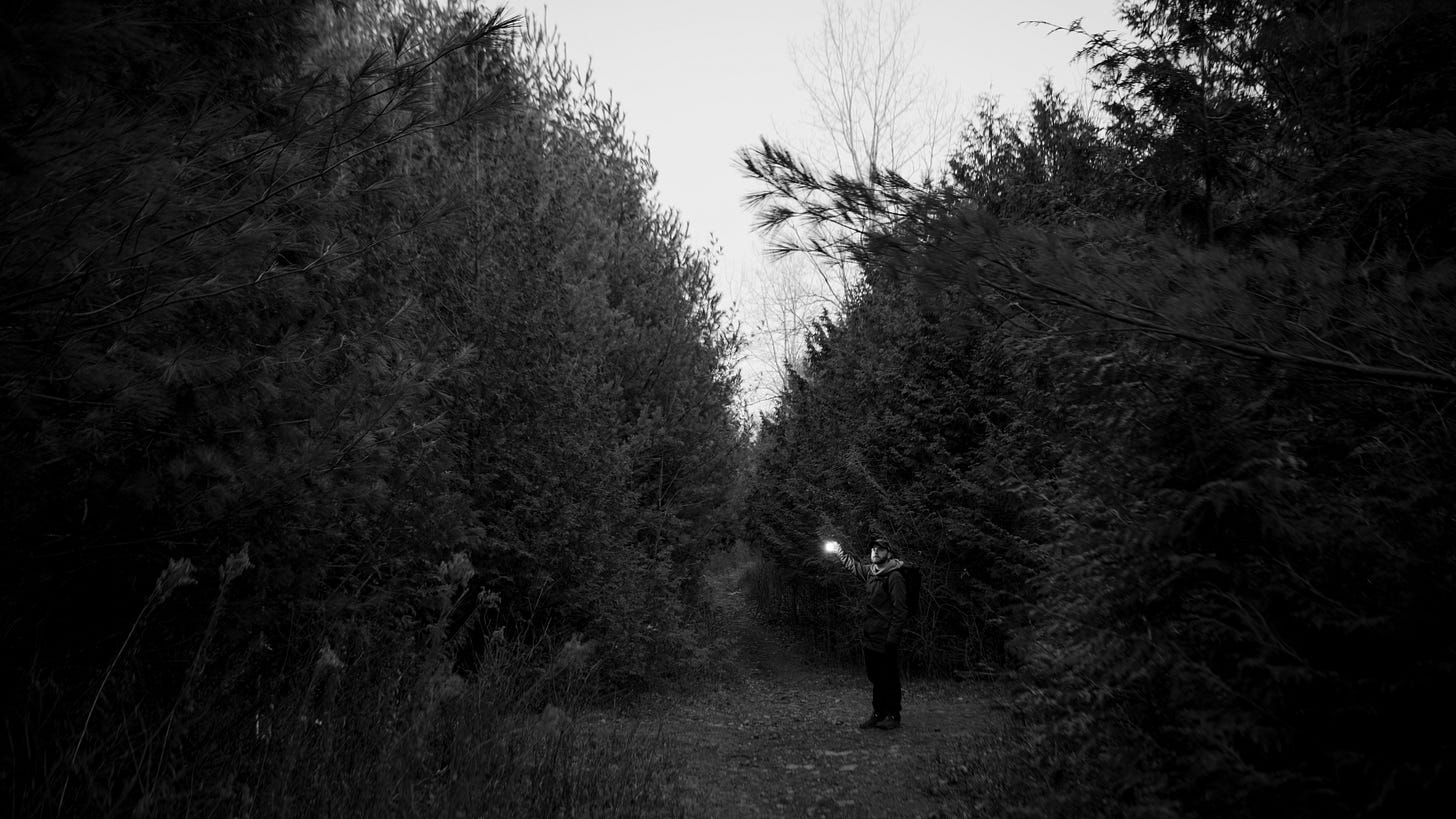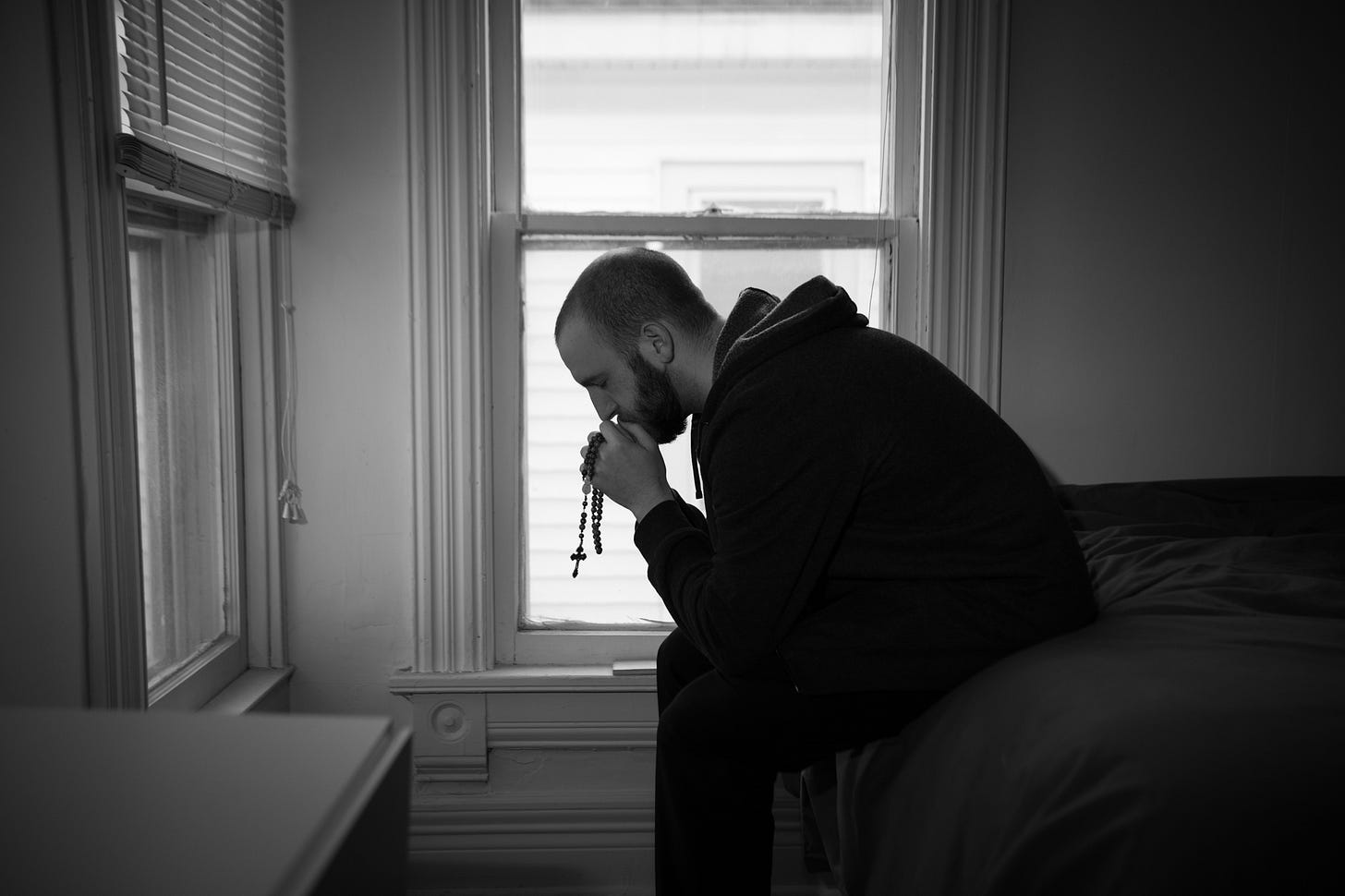My dear friends,
Advent is here, and I must write. I’ve felt a push to turn inwards, in terms of my work, for quite some time now, or maybe it’s something else. Whatever it was it’s time for it to end because this season cannot pass unmentioned.
This year has been quite the adventure, as you all know, and has not given me much free time. It afforded me even less creativity. There seems to be something that the constant noise and pressing concern of the world does to our souls that makes it difficult to sink back into a flow. What that is, I can’t fully explain yet, but it certainly is troublesome for one who wants to write and is a large part of my difficulty doing so lately. Silence is becoming necessary, not just preferred.
This is a season of slower work, unfinished projects, and turning inwards. The days get shorter, the air much colder, and darkness enfolds our days. It’s in such a time as this that we should turn inwards, towards the hearth, or even just the light of a single candle, and bring warmth to our families, our friends, and ourselves as we await not only new light from the sun but the Light of the World, who Himself came forth from the cold, dark confines of a cave. So find your way home this Advent, and fear no darkness along the way. Light will be here soon.
Advent is my favorite liturgical season. Of course, part of that is classic American love for the Christmas season and all the joys that come with it, but it truly became my favorite after last year, when I entered the season with a particular need and poverty of heart that was uniquely answered in the liturgical life of the Church.
This time last year I was in the depths. The reasons why are complicated, and not particularly relevant, but suffice to say by that point it was one of the darkest times in my life just as the year was darkening too. I was incredibly sad, lonely, feeling terribly guilty, and had been humiliated in a few specific ways that, while in hindsight weren’t that bad, at the time appeared to me deeply symbolic of a kind of death. My heart was suffering in a way it hadn’t before, and while I had accepted that cross and resolved to bear it rather than “fix” it, I was desperately longing for something, anything, on the horizon that would indicate this wouldn’t last forever. It was with that longing, refined and purified in suffering, that I entered the season of Advent.
Advent is a time of waiting; a time of vigilance. Like the Israelites, who waited centuries for a prophesied savior to come and deliver them from their almost constant affliction, so do we wait and endure the darkening days in expectation of our Lord’s birth on Christmas; so do we wait, and endure trials and sufferings of the heart with that hope. One of the most beautiful things about the Church’s liturgical calendar is its basic assumption that human life, like the Earth’s, goes through seasons. Things aren’t always happy and sunny, nor are they always gloomy and grey. The Church, in her wisdom, recognizes this reality and in doing so leads us into a year-long story of penance and glory, fasting and feasting, and death and resurrection as she undergoes her earthly pilgrimage. You and I, as part of the Body of Christ, experience this story too. Our personal subjective experiences don’t always match up perfectly with the grander story arc, but last year, for me, they did, and I became keenly aware that just as I was desperately searching for some light on the horizon, so was the whole Church, and that not only brought me comfort, it brought me hope. It brought me hope in a way it wouldn’t have if I hadn’t become keenly aware of my poverty of spirit and complete inability to save myself from its depths. Israel understood and experienced the darkness of affliction and suffering long before its savior arrived. We must do so as well.
I’m often drawn towards silence, but never so often as in Advent. The darkness of these days and the stillness of the air are naturally contemplative, the close of another year is naturally reflective, and even the simple New England tradition of lighting candles in the windows each night draws us inwards and speaks to us in the language of God: silence. It is my firm belief that the door must be shut on noise for the year, even as the discordant din of our consumerized culture crescendos to its most oppressive levels.
It is in this spirit that I will begin this Advent season. I often have very much to say, and in terms of my work lately, I’ve been very frustrated by my incessant desire to say something and yet inability to do so. I’ve wanted to speak, wanted to photograph, wanted to write, and have been able to do very little of note in any of those categories. It was in that frustration that I began this reflection, as well as when I read the introduction to Robert Cardinal Sarah’s book The Power of Silence, where he quotes French philosopher Joseph Rassam in a beautiful line that seems to have pointed me in the right direction for these next several weeks:
“although speech characterizes man, silence is what defines him, because speech acquires sense only in terms of this silence” - Le Silence Comme Introduction à la Métaphysique
Interestingly, after so long of feeling like I have nothing to say, and no insights to offer, I think I’ve finally stumbled upon what this has all been about.
It’s about humility. A virtue I evidently do not have.
I’ve been writing and photographing lately to show people, to become a notable and valued source of content, to make money from doing so, to make good on the standard I feel I have set since my photos were published in National Geographic, to show the nameless faceless Internet what I can do both as a photographer and writer, and woven through all of that is a desire to be praised. I want to be great at what I do, and that’s not a bad thing, but it becomes a bad thing when that standard of and motivation for greatness comes from pride. Even now, looking at a roll of film I just had developed, I feel as if I cannot truly love these photos until I share them and receive praise from others. How disgusting of an attitude.
Humility, poverty, waiting, silence; each one integral to Christ’s birth in Bethlehem on Christmas, each one something I still do not understand. Advent is a time for each of them; an opportunity for the Word made flesh to once again confound the world with nothing less than Himself. He made the world, and yet the world did not know him. I do not know him.
What, then, to wait for in the silence this Advent? What, then, in our poverty, to long for this Christmas?
Domine, non tisi Te.
-Ryan








Hi, Ryan,
I come here by way of the Catholic Land Movement on Twitter & I’d been waiting for you to write. Your writing is soulful & heartfelt & rings, very, very True, please don’t be discouraged. You strike me as a contemplative, someone who thinks deeply about the Truths of the Faith. You say you do not know Him, but your post rings with His Truth, which is His Cross.
What you notice on humility & pride really struck a chord with me. I think as a contemplative creatives, it’s hard walking the “grifter” line. I’m sorting it out — Dom Prosper Gueranger said “The love of sensual pleasures, avarice, and pride, that triple concupiscence which St. John so strongly condemns in his first Epistle, must be withstood, else our preparation for Christmas is useless.” — but then here I am 1) leisurely enjoying the internet & everyone’s thinking, 2) wondering about subscription options tied to my writing, how is that Just? when all I want is love & friendship in Christ? (but, hey, I’d like to be a professional writer, too) 3) I’d like a like, too.
Hang in there, I’m praying for you.🔥